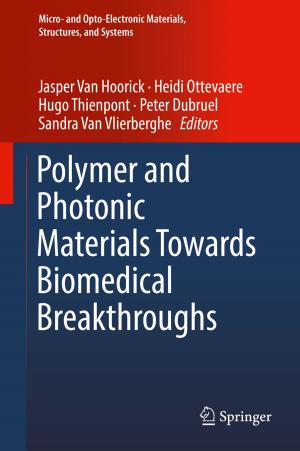Formation, Evolution, and Dynamics of Young Solar Systems
Nonfiction, Science & Nature, Science, Physics, Astronomy, Astrophysics & Space Science| Author: | ISBN: | 9783319606095 | |
| Publisher: | Springer International Publishing | Publication: | December 4, 2017 |
| Imprint: | Springer | Language: | English |
| Author: | |
| ISBN: | 9783319606095 |
| Publisher: | Springer International Publishing |
| Publication: | December 4, 2017 |
| Imprint: | Springer |
| Language: | English |
This book's interdisciplinary scope aims at bridging various communities: 1) cosmochemists, who study meteoritic samples from our own solar system, 2) (sub-) millimetre astronomers, who measure the distribution of dust and gas of star-forming regions and planet-forming discs, 3) disc modellers, who describe the complex photo-chemical structure of parametric discs to fit these to observation, 4) computational astrophysicists, who attempt to decipher the dynamical structure of magnetised gaseous discs, and the effects the resulting internal structure has on the aerodynamic re-distribution of embedded solids, 5) theoreticians in planet formation theory, who aim to piece it all together eventually arriving at a coherent holistic picture of the architectures of planetary systems discovered by 6) the exoplanet observers, who provide us with unprecedented samples of exoplanet worlds. Combining these diverse fields the book sheds light onto the riddles that research on planet formation is currently confronted with, and paves the way for a comprehensive understanding of the formation, evolution, and dynamics of young solar systems.
The chapters ‘Chondrules – Ubiquitous Chondritic Solids Tracking the Evolution of the Solar Protoplanetary Disk’, ‘Dust Coagulation with Porosity Evolution’ and ‘The Emerging Paradigm of Pebble Accretion’ are published open access under a CC BY 4.0 license via link.springer.com.
This book's interdisciplinary scope aims at bridging various communities: 1) cosmochemists, who study meteoritic samples from our own solar system, 2) (sub-) millimetre astronomers, who measure the distribution of dust and gas of star-forming regions and planet-forming discs, 3) disc modellers, who describe the complex photo-chemical structure of parametric discs to fit these to observation, 4) computational astrophysicists, who attempt to decipher the dynamical structure of magnetised gaseous discs, and the effects the resulting internal structure has on the aerodynamic re-distribution of embedded solids, 5) theoreticians in planet formation theory, who aim to piece it all together eventually arriving at a coherent holistic picture of the architectures of planetary systems discovered by 6) the exoplanet observers, who provide us with unprecedented samples of exoplanet worlds. Combining these diverse fields the book sheds light onto the riddles that research on planet formation is currently confronted with, and paves the way for a comprehensive understanding of the formation, evolution, and dynamics of young solar systems.
The chapters ‘Chondrules – Ubiquitous Chondritic Solids Tracking the Evolution of the Solar Protoplanetary Disk’, ‘Dust Coagulation with Porosity Evolution’ and ‘The Emerging Paradigm of Pebble Accretion’ are published open access under a CC BY 4.0 license via link.springer.com.















